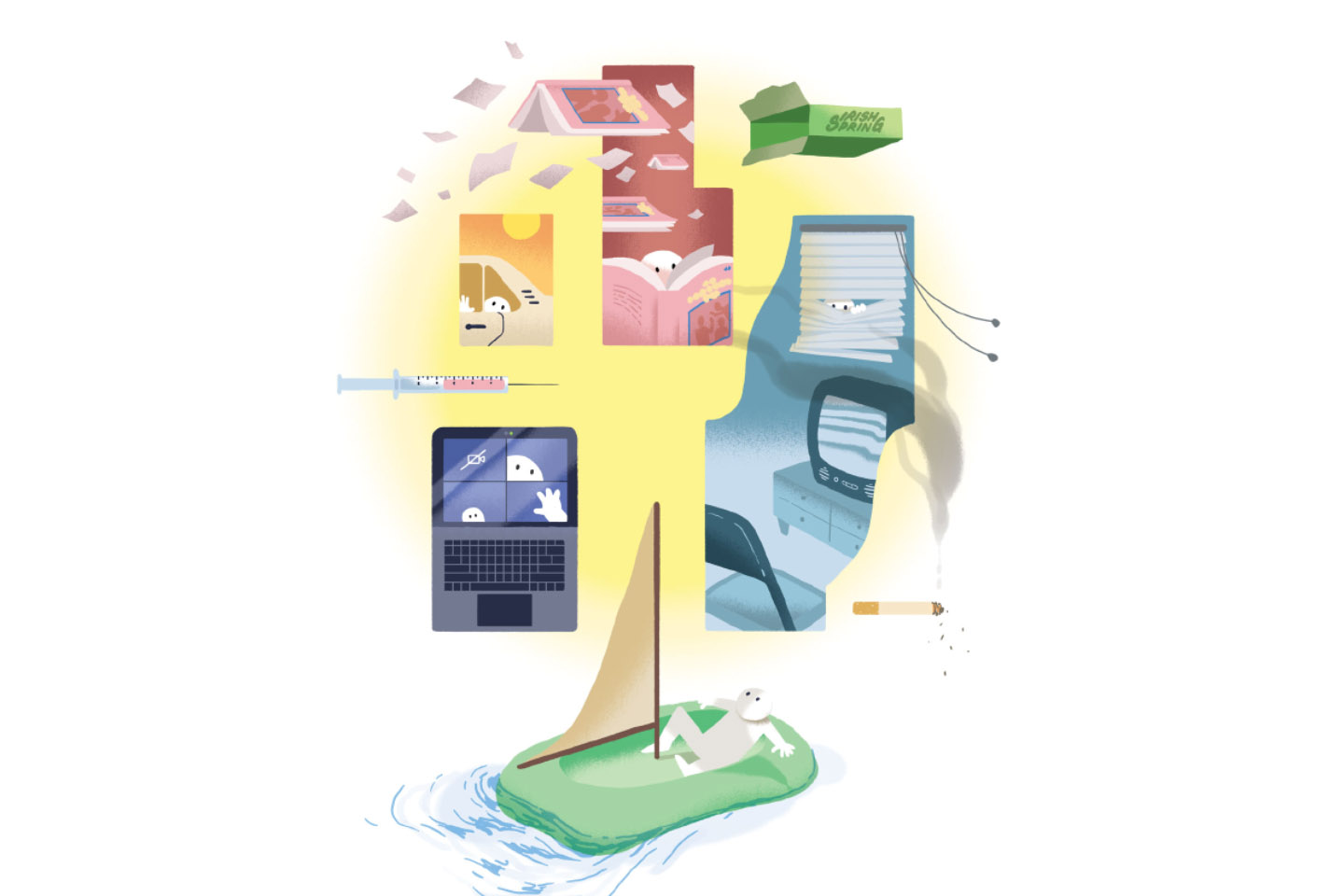Isolation can activate the most resilient parts of us. It has since childhood.
One of my earliest childhood memories is of my grandma’s house. The living room, if you could call it that, was sparsely furnished. I don’t recall a couch, just a metal table and two metal chairs where my grandpa would park himself for the day to watch whatever baseball game happened to be on, the curl of smoke from his cigarette rising like a dancing dragon.
There were no toys strewn about, none of those colorful play mats used by modern-day parents to cushion a fall. Instead, I remember sitting on the speckled concrete floor hollowing out the centers of Irish Spring soap bars until they became little boats I floated in the sink.
When I was around 8 years old, I remember being left home alone on the weekends. “Don’t open the door for any strangers,” my mom warned before she and my dad went to work or shuttled my brothers between sports games. Inevitably, the doorbell would ring. Quickly, I’d shut off the TV and peep through the windows, careful not to rustle the Venetian blinds and make my presence known. I remember being alone a lot, actually, occupying myself in my bedroom creating imaginary worlds from my collection of erasers or getting lost in perennial favorites like The Babysitter’s Club or Goosebumps.
It was the unsupervised times of my childhood, I’ve realized, that helped form my strongest sense of self.
Lisa Yamada-son
Today, in what feels like an imagined world gone awry, we’ve grown weary of isolating at home. Zoom calls have lost their glow, the kids have gotten on our last nerve, we’ve shaved our heads in a final act of desperation. An unknowable pandemic has given way to economic upheaval and social unrest, sparking division over injustice, monuments, the wearing of masks—over the way in which our country has come to value individual freedoms over collective good. Not even a second-wave surge of Covid-19 cases in late June proved enough to keep people off beaches and out of bars. Measures regarded as lifesaving by one—social distance, masks—are seen as a violation of civil liberties by another.
For many, including myself, the pandemic is inconvenient and dull; for others, it is debilitating. As Covid-19 continues its relentless march, it can be tempting to return to old habits. I have to force myself to resist calling friends outside of my “‘ohana bubble” whom I haven’t seen in months. And yet I know that one of the simplest courtesies I can afford my fellow neighbors is to stay away from them.
Undoubtedly, there will be bouts of boredom. (How long before your torso forms into the lumpy shape of the couch?) There will be anxiety. There will be fear. But isolation can activate the most resilient parts of us. It was the unsupervised times of my childhood, I’ve realized, that helped form my strongest sense of self.
What are we left with when left to our own devices? Childhood tells us that sometimes we are left with scars. I take inventory of my body: the scar beneath my lower lip from when I bicycled down the driveway and went headfirst into the pavement; the ridge on the tip of my pointer finger from when I sliced it while playing with scissors.
Looking back on this year, we will see a society and economy marred by the effects of the pandemic. But if we can regard the wellbeing of others over our own, in the years to come, as we mine our memories from this time, we will see there were also little boats, rising, day by day, with the tide.


